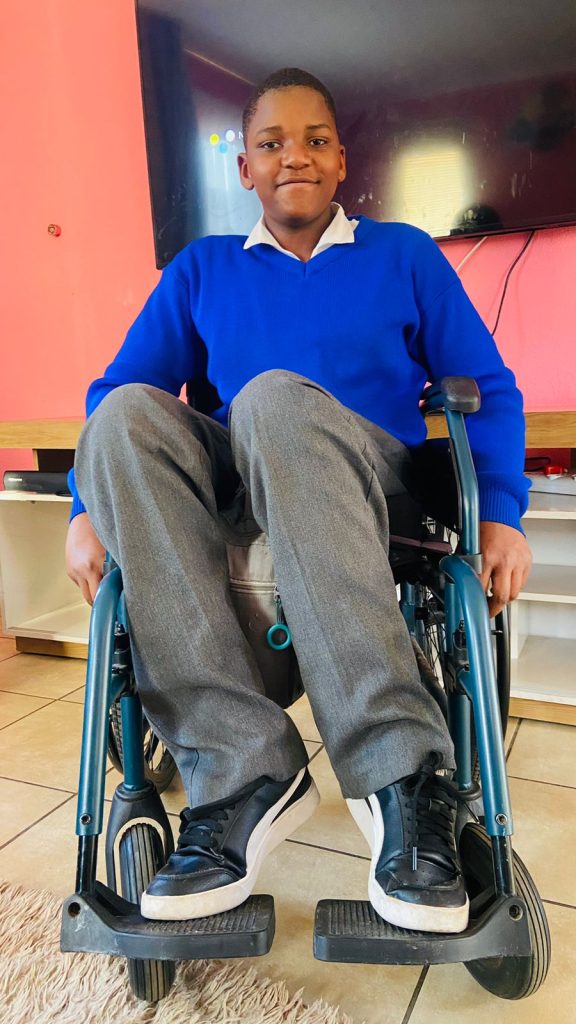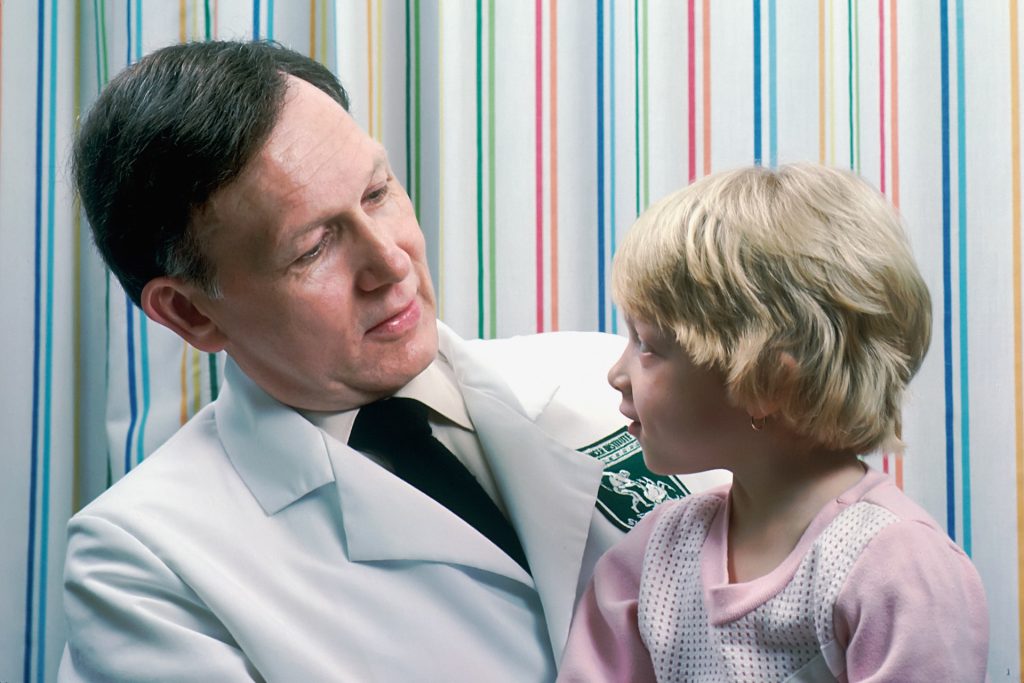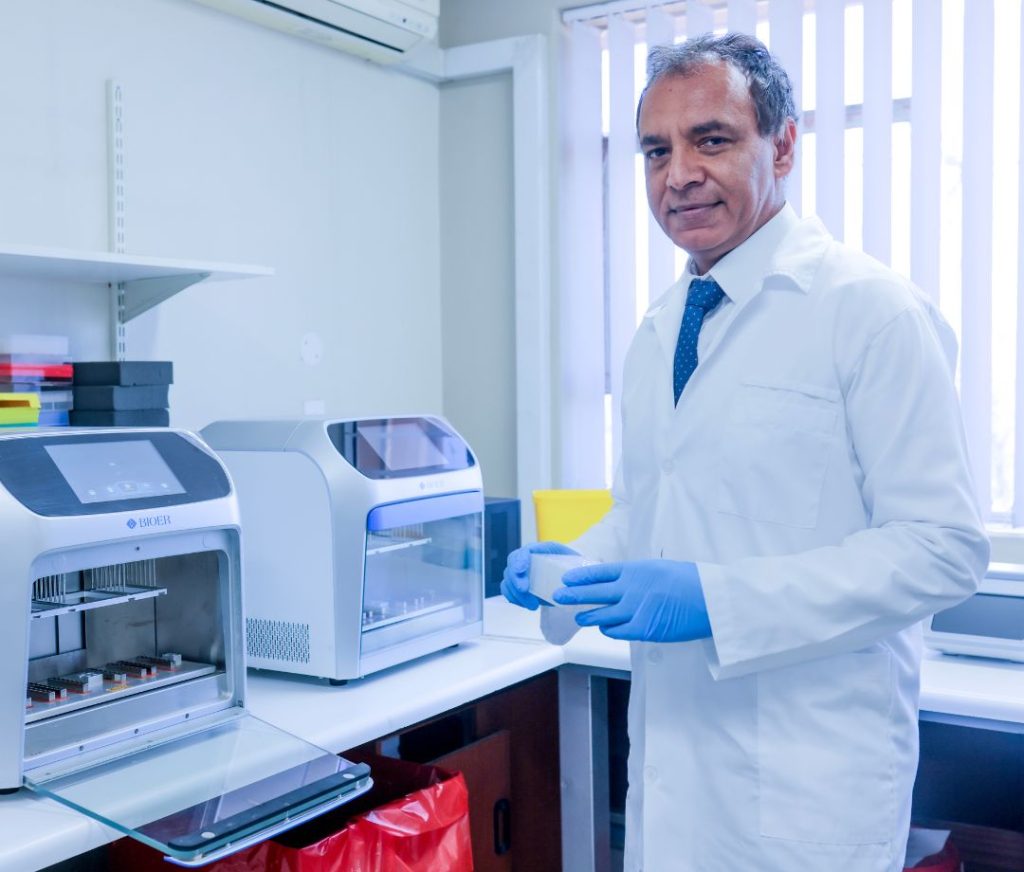What I Learned on My Journey through Breast Cancer
In Breast Cancer Awareness Month we can all do something to help

I was diagnosed with breast cancer on an ordinary Thursday afternoon in February 2023. I was 34 years old. The December before, my GP had performed a breast exam as part of a general check-up and was concerned that with my dense breast tissue she might be missing something. She wanted me to have an ultrasound, but there was no rush. Her exact words to me were something like: “Don’t worry, it can wait until you have medical aid savings again in January.”
The ultrasound turned up a small shadow, just a centimetre in diameter – something that could be a cyst, but the radiologist thought we should do a mammogram “just in case”. Would I mind waiting? No, I wouldn’t mind. The mammogram was worrying enough that she got approval to do a biopsy the next day. “Just in case”. The results came in the following week.
I had none of the risk factors for breast cancer. I didn’t drink, didn’t smoke, didn’t have any family members with a history of breast cancer, was nowhere near the age of 50. A few months later, I would find out I had none of the genetic markers which can predict risk either – not only did I test negative for the genes associated with breast cancer called BRCA 1 and 2, I didn’t have any of the genes connected with any kind of cancer at all.
As I say, I was diagnosed on a Thursday afternoon. I had my first appointment with an oncologist that Friday morning. I had my first set of scans two days later on Monday and my initial surgery the following Friday. I started chemotherapy treatment within three weeks of first having the word “cancer” used in relation to my body. My doctors moved quickly because they had to. On a scale of 1 to 9 on something called the Bloom and Richardson classification, my cancer was a 9. So, even though I was only stage 1, I was also a grade 3. “Aggressive” doesn’t begin to cover it.
During this time, I held onto five facts. First, we had caught the tumour at exactly the right time. Had I gone in for screening any earlier, we might not have found the cancer yet. Had I gone any later, it likely would have grown and spread to my lymph nodes and other parts of my body and I might have needed more radical treatment and surgeries. Second, it was treatable. My particular kind of cancer ought to respond well to a combination of chemotherapy and radiation. Third, I was otherwise very healthy, aside from the cancer. Fourth, I had a medical aid which was covering almost everything I needed. And, most importantly, fifth, I had a wonderful support system of my partner and his family and our close friends to rely on.
From the beginning, I had an incredible standard of care. To the point where the doctors I saw had heated examination beds – they didn’t want their patients to experience any additional discomfort and distress during such a difficult time. And it was difficult. Chemotherapy and immunotherapy left me feeling battered and broken. Nausea, intense muscular pain, fatigue, vomiting, diarrhoea, constipation, weight gain, hair loss, brain fog, depression – some of the awful side effects it’s impossible to really prepare for. In fact, I had such a hard time mentally during treatment that at one point I had to be hospitalised.
The same day I received my diagnosis, I overheard a woman in my doctor’s office asking if it was possible to make a payment plan for her treatment. The administrators replied that treatment was likely to cost in excess of R300 000 at a minimum. I cannot even begin to imagine having to go into debt to fight off cancer. For treatment that makes you feel more than just sick, more like you’re dying. For treatment that may not necessarily work.
But this is the choice that faces most people with cancer in our country. With a relatively small number of people on comprehensive medical aids with screening benefits and prescribed minimum benefits, many face waiting for treatment in government facilities or running up huge bills at private clinics.
According to the most recent report by Statistics SA, breast cancer is the most commonly diagnosed cancer in women in South Africa, accounting for 23% of all cancers. It is also one of the most deadly, representing 17% of cancer deaths in women, just behind cervical cancer.
The Stats SA report lists “awareness of the symptoms and need for screening” as the main intervention to reduce the risk of death by breast cancer. The report also draws attention to the discrepancy in mortality rates in different population groups. For example, Coloured women have a relatively low incidence of breast cancer, but a high mortality rate – meaning that they are dying of breast cancer after being diagnosed too late. Stats SA points out that this is likely due to “poor access to cancer treatment facilities” as well as a lack of medical aid coverage. It is perhaps unsurprising that Black and Coloured women are the groups least likely to have medical aid in South Africa.
There are also some NGOs trying to step in to fill the gaps, like the aptly named I Love Boobies or the PinkDrive. These organisations make it their mission to give women a fighting chance to beat breast cancer. They provide free screenings to women around the country who would otherwise not be able to afford this necessary medical care.
I am one of the lucky ones. I officially went into remission on 30 August 2023 when I had a lumpectomy to remove the tumour in my right breast. Remission means that the cancer can no longer be detected in your body through scans and blood tests. It doesn’t mean you’re “cured”. There could still be cancerous cells in the body, which is why cancer is also often treated with radiation like mine was. Some people prefer not to use the term “survivor” until they have been in remission for over five years.
Five years is an important milestone for many people diagnosed with cancer. It’s often the period in which someone is most likely to suffer a relapse. I live with the possibility that my cancer will come back every day; I am reminded by my scars and by the fact that I am still recovering physically and mentally from a traumatic year. I still battle with periods of fatigue and depression and I will never be the same person I was before falling ill.
Still, remission is better than relapse. So far, so good. I continue to see my myriad of doctors every few months for scans and tests and examinations to check that nothing has come back yet and I feel like I’m getting stronger.
Almost a year to the day after I went into remission, my fiancé and I ran the Johannesburg Women’s Race in support of the PinkDrive. A mobile health unit was parked on the field in Mark’s Park offering free screenings all morning, which women were queuing up to access after the run. The festive atmosphere was bittersweet to me. Certainly, some of the women in that line would not know that they were starting on a long and painful journey, a journey which sometimes feels like it has no end. Hopefully, they would be starting early enough to be given a chance to become a survivor.
There’s another meaning of “remission” I wasn’t aware of until I looked it up. It can also be defined as “a cancellation of debt”. No-one with cancer should have to crowdfund in order to get treatment, but that is the reality we are faced with in our country. This October, I encourage everyone to contribute in whatever way they can to a cancer survivor’s remission. Join the Imagine Challenge, try a secret swim, pick up a pink bottle of milk or a scrunchie, support someone raising funds on GivenGain, get yourself examined. Every one of us can join the fight against breast cancer.
Republished from GroundUp under a Creative Commons Attribution-NoDerivatives 4.0 International Licence.











